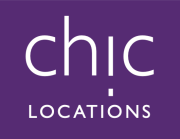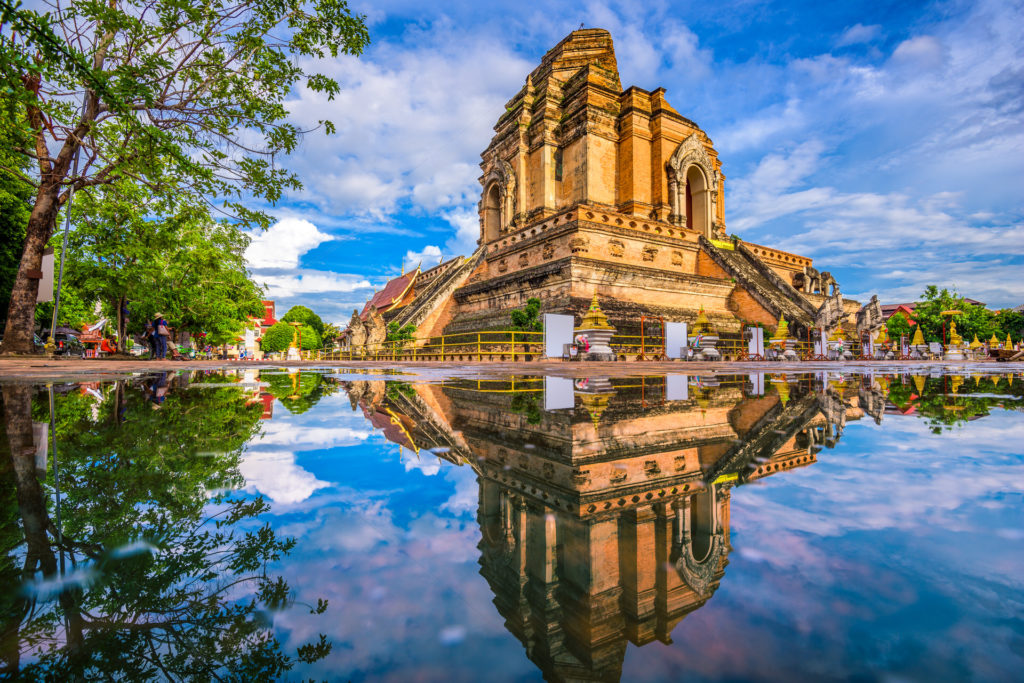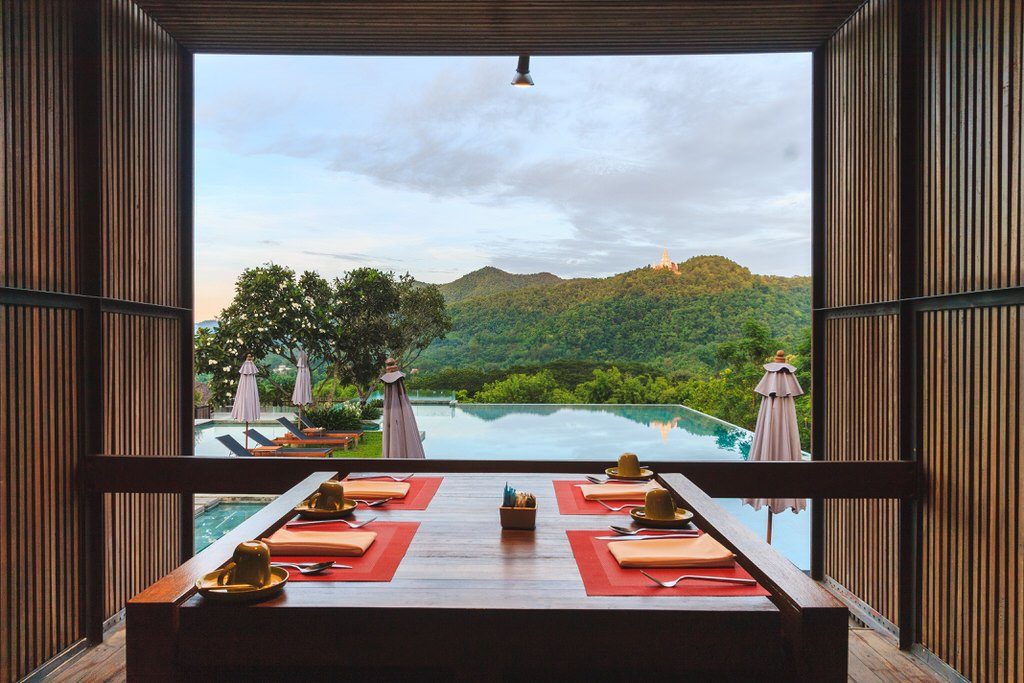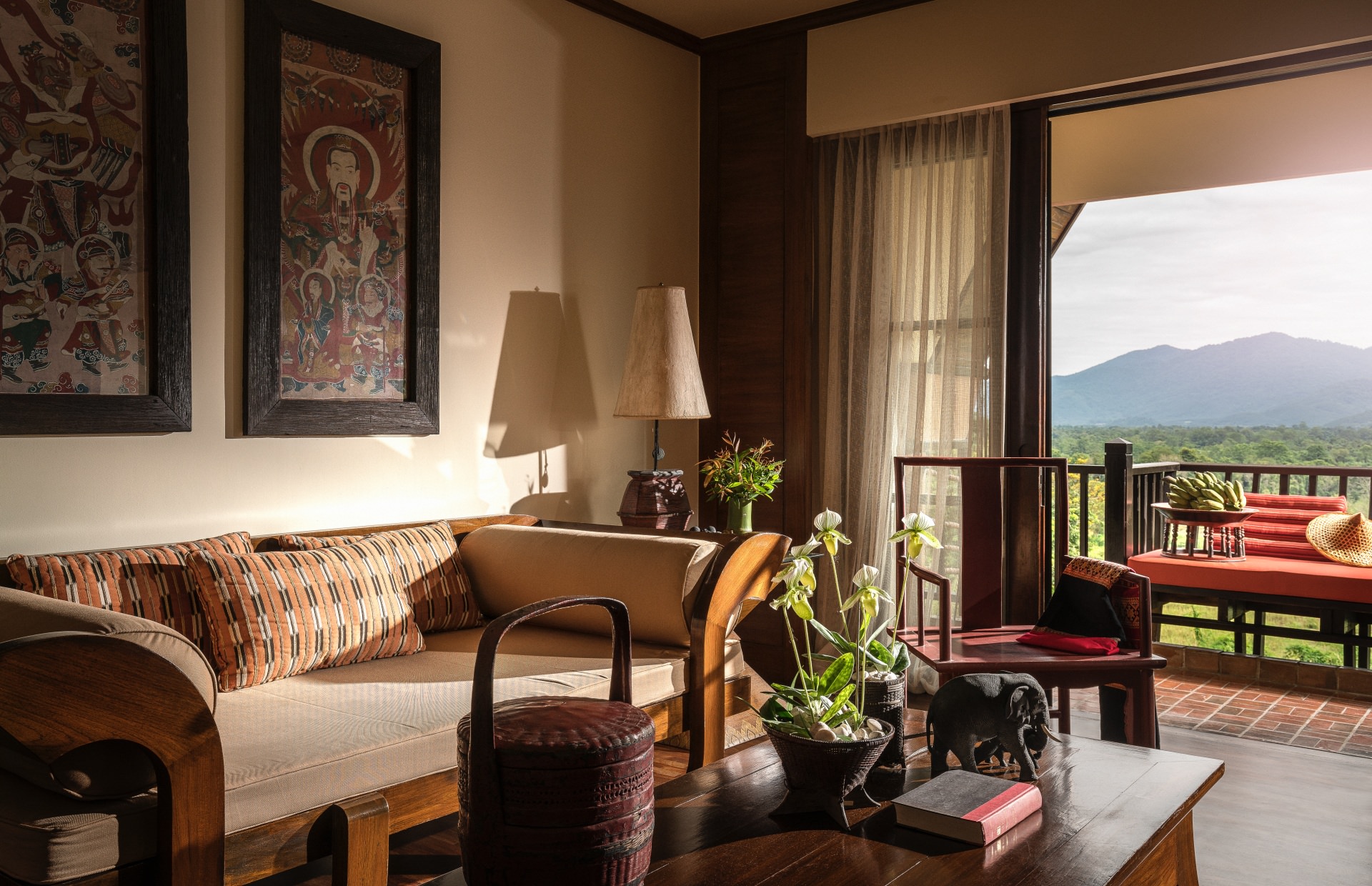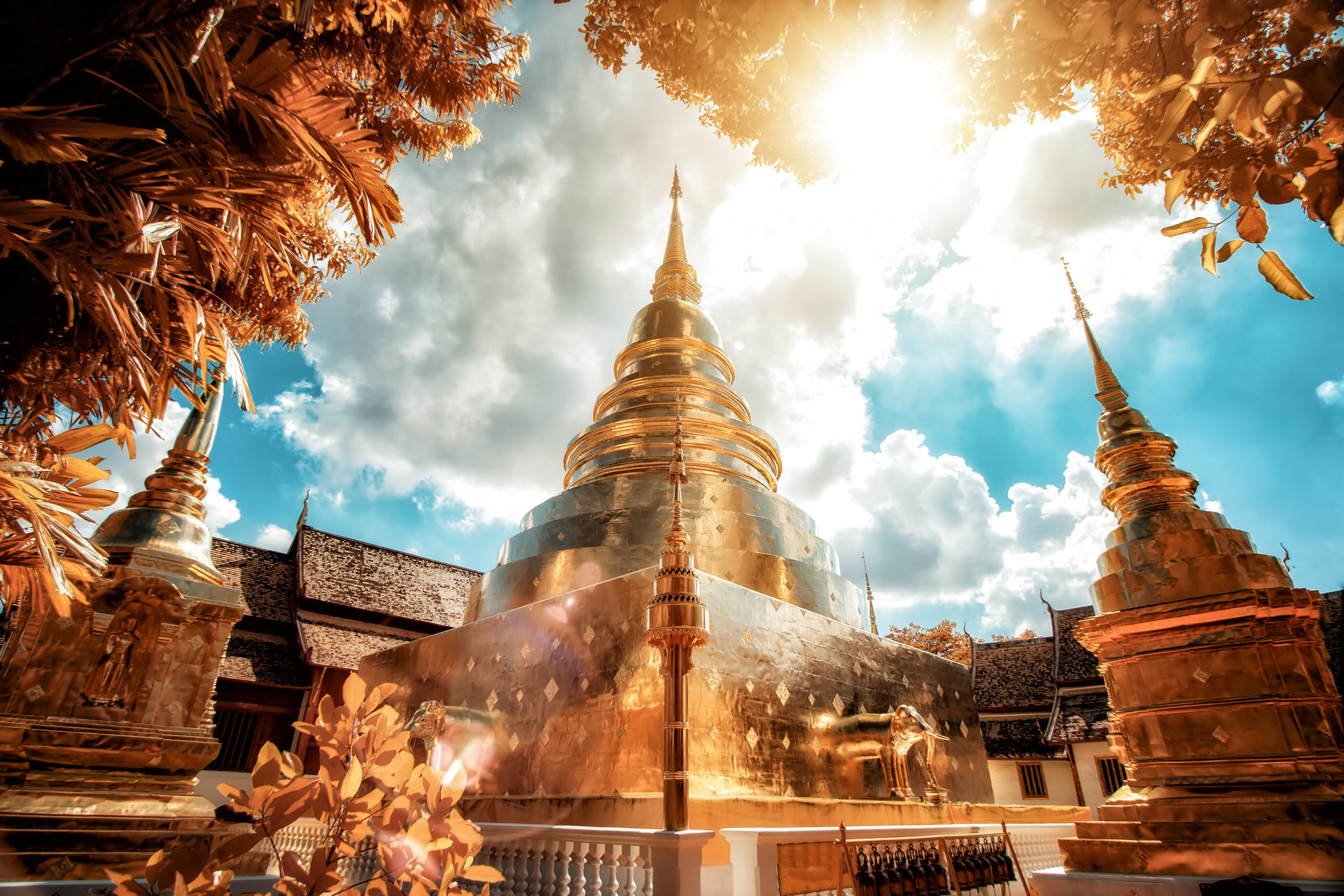
Chiang Mai & North Thailand offer fascinating sightseeing tours with numerous eco-adventure options, including elephant trekking and river rafting—all just a short drive outside the city…
Chiang Mai: Northern Thailand’s Cultural Capital
Thailand’s second-largest city, is a fraction of the size of Bangkok. It is compact and bustling. Despite some recent development, the city maintains a compact, walkable layout and vibrant market town character. Modern developments blend seamlessly with traditional culture, making it the perfect gateway to Northern Thailand.
✈️ Bangkok to Chiang Mai: 60-minute flight
Located in Thailand’s northernmost region, Chiang Rai preserves its traditional charm and serves as the gateway to the historic Golden Triangle—the fascinating intersection where Thailand, Laos, and Myanmar (Burma) all meet.
Chiang Mai & Chiang Rai: Hotels, Shopping, and Travel Tips
In Chiang Mai, you’ll find a selection of superb and highly impressive hotels. The city is known for its excellent shopping options, whether you’re browsing high-class boutiques or exploring the famous Night Market. Dining is another highlight, with many fantastic restaurants—those located along the Mae Ping River are particularly noteworthy for their ambiance and cuisine.
Chiang Mai is well-connected, with good airline access and direct flights to many resorts in Southern Thailand, making it a convenient base for exploring the region.
Chiang Rai serves as the gateway to the Golden Triangle region and offers opportunities for exploring the Mekong River. While the town itself has limited attractions, the featured hotels are located about a 45-minute drive away, providing a more tranquil setting. Flights between Chiang Rai and Bangkok take approximately 65 minutes, offering easy access for travelers.
For those traveling between Chiang Mai and Chiang Rai, we recommend the 6-hour scenic mountain pass drive, which offers stunning landscapes and the chance to visit hill tribe villages along the way. Alternatively, there is a more direct motorway option, which is faster but less interesting.
Realities
Development and regional tourism are growing quickly, so the main sights can occasionally be crowded. The night market in Chiang Mai offers an entertaining shopping experience that involves bargaining, but the brand names may be misspelled.
Facts about Chiang Mai:
- Historic City: Chiang Mai, founded in 1296, is one of the oldest continuously inhabited cities in Thailand.
- Cultural Significance: Known as the cultural capital of Thailand, it retains many traditional aspects of Thai culture that have been lost in other areas due to modernization.
- Temples Galore: Chiang Mai is home to over 300 Buddhist temples, showcasing classic Lanna, Thai, Lao, Lu and Khmer style architecture.
- Doi Suthep: One of the most notable temples is Wat Phra That Doi Suthep, nestled on a mountain offering stunning views of the city.
- Festivities: Chiang Mai is famous for its festivals such as the Lantern Festival (Yi Peng) and the Thai New Year (Songkran).
- Night Bazaar: It is known for its vibrant night markets, particularly the Night Bazaar, selling everything from street food to crafts.
- Culinary Diversity: The city is a hub for Northern Thai cuisine, with dishes such as Khao Soi (curried noodle soup) being a local signature.
- Art and Crafts Centre: It has been designated as a UNESCO Creative City, with numerous art galleries, studios, and a thriving crafts scene, especially in traditional umbrella making.
- Elephant Nature Park: Chiang Mai is home to the Elephant Nature Park, a sanctuary and rescue center for elephants and other animals.
Facts about Chiang Rai:
- Founded in 1262 CE and was the first capital of the Lanna Kingdom
- Has over 700 years of rich history and cultural heritage
- Home to the famous White Temple (Wat Rong Khun), considered one of the most unique temples in the world, combining traditional Buddhist elements with contemporary art and pop culture
- Features the stunning Blue Temple (Wat Rong Seua Ten)
- Known for its tea plantations, particularly the Choui Fong Tea Plantation
- Home to numerous hill tribe communities preserving traditional ways of life
- Known for its night bazaar and local crafts
- Famous for its Lanna cultural heritage
- Home to several indigenous hill tribe communities
- Located near several hot springs and waterfalls
Weather Guide: Best Time to Visit
Peak Season (December to March)
- Cool mornings and evenings (pack warm layers)
- Temperature rises significantly towards midday
- Most popular tourist months
- Pack a warm sweater or jumper for morning/evening activities
Hot Season (March to May)
- Driest period of the year
- Highest temperatures recorded
- Low precipitation levels
- Peak daytime heat
Wet Season (June to November)
- Higher humidity levels
- Frequent rainfall patterns
- Characterized by intense, brief showers
- More tropical climate conditions
"There's no such thing as the best hotel, just the right one..."
Click for Booking Terms, Price Guides, Flight Information
CHIC Locations Terms and Booking Conditions PDF
All price guides are Per Person Sharing Double Room (entry level), based on travel between May and/or June when prices are generally at their lowest and include promotional offers. Supplements will probably apply at other times, particularly mid-summer in the Med, and for rooms and/or transfers arranged for single travellers.
For example, the Caribbean and Indian Ocean prices for winter can be approximately double the May-June level and about 50% more in Asia. For the Mediterranean & Canary Islands, Caribbean, Arabia and the Indian Ocean (except Sri Lanka) price guides generally include airfare and transfers.
*For Sri Lanka and Far East, we show a per-person, per-night hotel guide, excluding airfare, as arrangements tend to be individually tailored multi-centre itineraries.
Please refer to Travel Advice on our home page or look at www.fco.gov.uk as the Foreign Office may have issued specific destination information on safety and terrorism.

All the flights and flight-inclusive holidays on this website are financially protected by the ATOL scheme. When you pay you will be supplied with an ATOL Certificate. Please ask for it and check to ensure that everything you booked (flights, hotels and other services) is listed on it. This lists what is financially protected, where you can get information on what this means for you and who to contact if things go wrong.
Please see our booking conditions for further information or for more information about financial protection and the ATOL Certificate, go to: www.caa.co.uk.

Some of the flights and flight-inclusive holidays on this website are financially protected by the ATOL scheme. But ATOL protection does not apply to all holiday and travel services listed on this website. This website will provide you with information on the protection that applies in the case of each holiday and travel service offered before you make your booking. If you do not receive an ATOL Certificate, then the booking will not be ATOL protected. If you do receive an ATOL Certificate but all the parts of your trip are not listed on it, those parts will not be ATOL protected.
